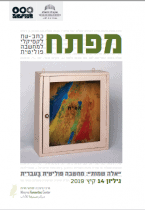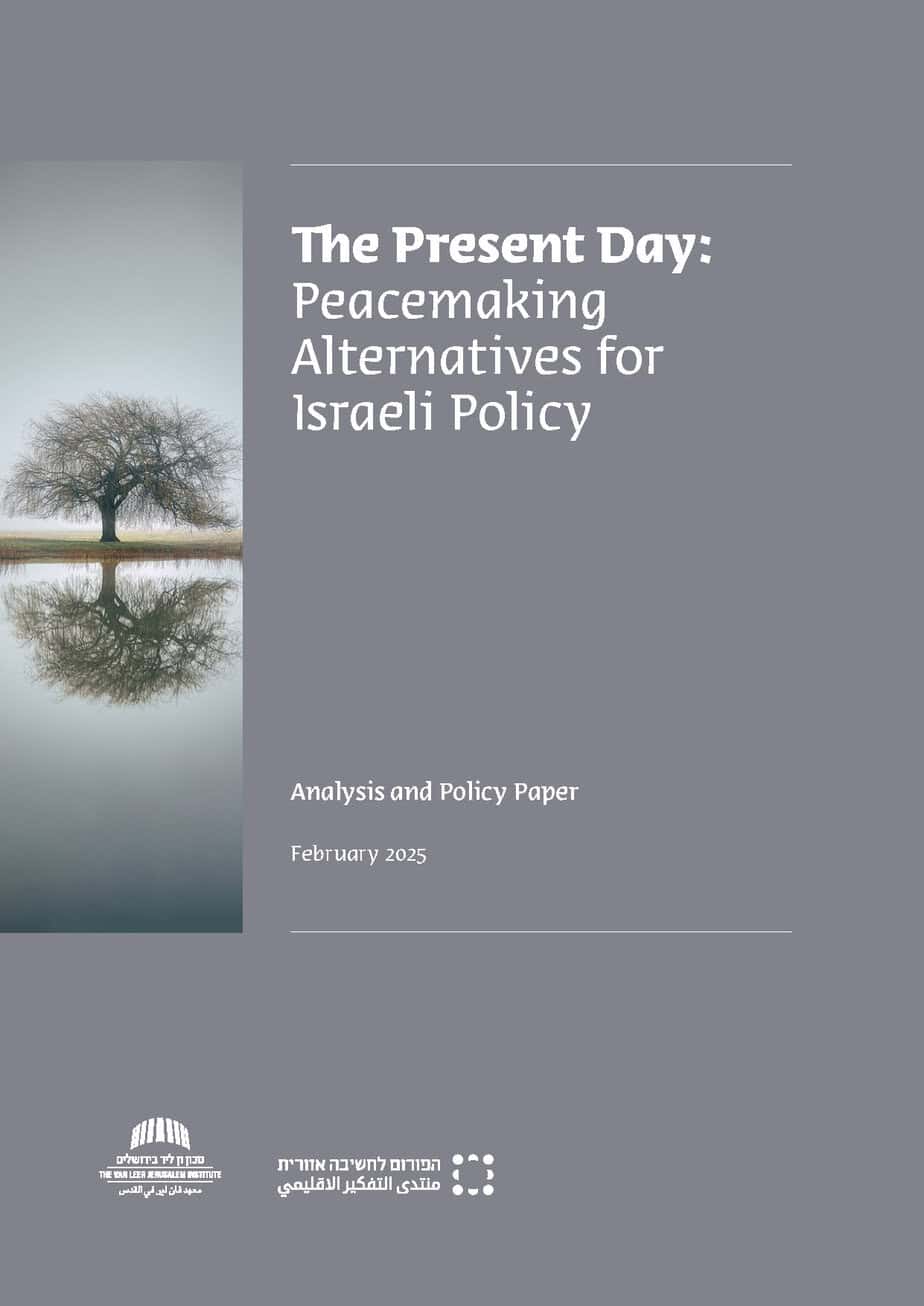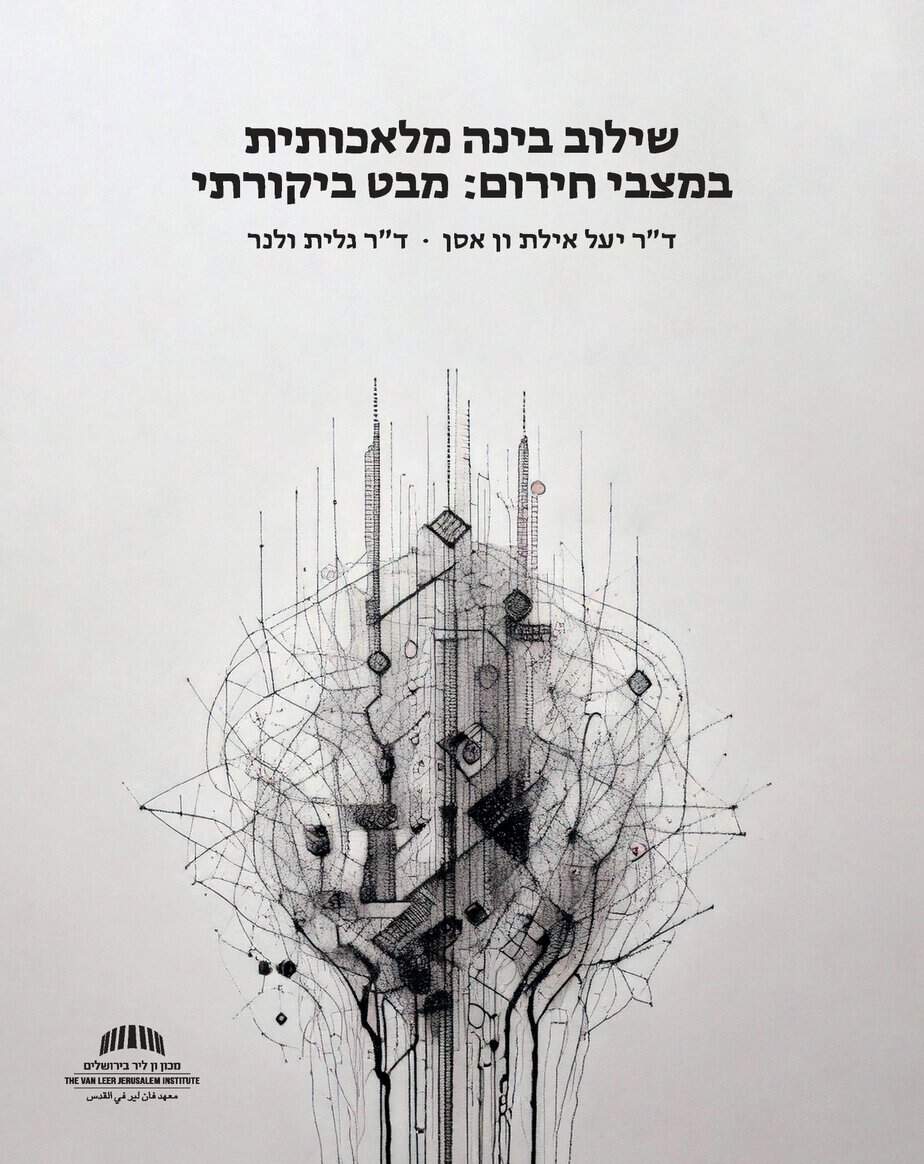“These Are the Names”: Political Thought in Hebrew
A special issue of Mafte’akh: Lexical Review of Political Thought
| Edited by | Assaf Tamari |
| Publisher | Van Leer Institute Press and the research group Lexicon for Political Theory at the Minerva Humanities Center, Tel Aviv University |
| Language | Hebrew |
| Year of Publication | 2016 |
The special issue titled “‘These are the Names’: Political Thought in Hebrew,” issue 14 of Mafte’akh: Lexical Review of Political Thought, addresses questions touching on the unique significance of Hebrew for our political thought. What is the meaning of the work of political conceptualization in Hebrew particularly? How should one relate to the historical and religious baggage of Hebrew and to its status as a sacred language, as a language full of divine names, as a language of revelation and creation? How should one relate to its crisis of secularization and to its transformations when it became a sovereign language, a language wishing to rid itself of sanctity? What relations does secularized Hebrew maintain with the sacred tongue, and to where has its sacred load been moved? This issue thus asks how the past and the sanctity of Hebrew operate in our political life and what may be their contribution to a contemporary thought that is trying to find a way out of the political dead ends of the current situation in Israel/Palestine.
The seven articles in this issue address these questions by studying some of the “names” that populate Hebrew, each of which constitutes an opening for a different kind of thought about Hebrew’s possibilities: Ba’al Hayyim (animal), ha-Shem ha-Mishtatef (Homonym(, Yad Yisra’el Takifa (Israel’s strong hand), ‘Eruv, ‘Aliyah, Ribonut (sovereignty), and Torah u-Mitsvot. The work appearing in this issue is an attempt to respond to the challenge of the apocalyptic horizon of the secularization of Hebrew, as it appears in the famous letter of Gershom Scholem to Franz Rosenzweig in 1926—not only through an analysis limited to the descriptive dimension of the metamorphoses of Hebrew and their political ramifications. First and foremost, this is an effort to form a responsible way to work with Hebrew in light of its historic and religious load and in light of the internalization of the meaning of secularization in relation to the language.
This issue is the product of a collaboration between the Van leer Jerusalem Institute and the Lexicon for Political Theory research group at the Minerva Humanities Center at Tel Aviv University, which began as a collaborative workshop in 2016, from which grew five of the articles in the issue.




